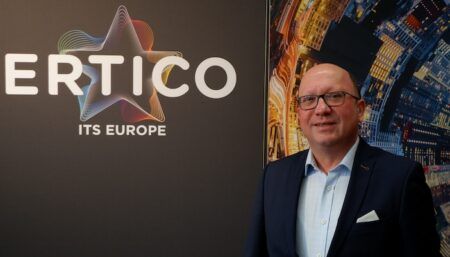VTT Technical Research Centre of Finland Ltd and ITS Russia have signed a partnership agreement concerning the development of intelligent transport systems (ITS) that can be used in the Russian CAVLANE project, which aims to develop new services, products and standards for pan-European border crossings.
CAVLANE is linked to an initiative of the Russian Ministry of Industry and Trade to create a roadmap for transport solutions that support automated driving, as well as to the Russian government’s Autonet-2 scientific and technical initiative.
The CAVLANE project involves testing ITS services for drivers before and after border crossings, such as advance queue warnings that are intended to make traffic flow more smoothly at the Nuijamaa Finnish-Russian border crossing point, and standardized European Union vehicle-to-vehicle (V2V) warning messages. The eventual aim is to link CAVLANE to an ITS route sponsored by the Russian government, which would begin in the largest cities in Finland and run via Helsinki to Saint Petersburg, Moscow, Kazan and China.
The CAVLANE program has already helped to network a host of Finnish organizations and businesses, with VTT in charge of coordinating the national business consortium, which currently consists of Indagon, Nokia, Vediafi, Dynniq, and Infotripla. There is also a similar business consortium in Russia, which is coordinated by ITS Russia, and it is hoped that businesses from all over Europe will join the partnerships.
The Finnish Transport Safety Agency’s TrafficLab and the Finnish Ministry of Transport and Communications launched in May a project aimed at enabling new transport services for cross-border transport. VTT is also in charge of another project launched by TrafficLab in May, which involves testing digital transport services in arctic conditions and offering seed money to businesses.
“Building an ITS and logistics route from Finland via Russia to the Far East is extremely important both economically and in terms of transport, and we want to promote its implementation together with businesses and various stakeholders,” explained Seppo Öörni, a senior adviser at the Finnish Ministry of Transport and Communications. “At its best, the route can act as a platform for collaboration that benefits everyone involved in the global transport and logistics revolution.”
Director general of data and knowledge at the Finnish Transport Safety Agency, Juha Kenraali, added, “The starting point is to promote cross-border cooperation with Russia or other Nordic countries. The aim is to begin testing new transport services through a business-led approach.”




